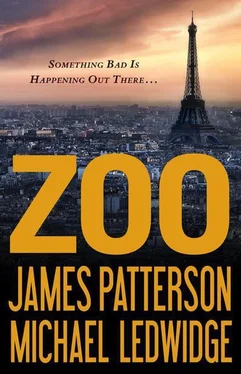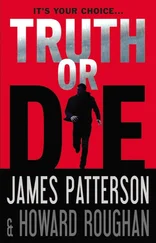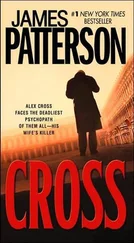Leahy put the lights back on.
I turned as Chloe looked at me with eyes wide and bright as tealights. This was worse than we could have imagined.
She closed her eyes.
“I want to get Eli, and I want to get out of here,” she whispered.
I rubbed her hand powerlessly, not knowing what to say.
THAT AFTERNOON, MARLOWE and Leahy shuffled us into several other meetings. More government people kept arriving by the minute. There was someone from the CIA, Alicia Swirsky, a tiny middle-aged woman whose elfin features were offset by her serious-as-a-heart-attack demeanor, and two FBI agents in midnight blue—Rumsy, a young guy still wet behind the ears with enthusiasm, and Roberts, a guy with pockmarked cheeks and the old-school look of a man who knew his barber and tailor by name. The latest arrival was a four-star army general named Albert Garcia, who had just stormed in with the fuck-you bluster of someone accustomed to everybody rising and saluting when he enters a room. He was flanked by two uniformed aides. Garcia had a magpie’s nest of shiny objects weighing down his uniform, a body like a backyard brick oven, and a head that looked like it’d been carved out of a tree stump with a chain saw.
After the video of the giant dog pack—dog horde, maybe?—was shown for what seemed like the fifteenth time, this Garcia guy cleared his throat.
“Now, according to ground reports, all the animals in this attack are male,” the general said. “Why is that again?”
“Mass male grouping is one of the fundamental aspects of this phenomenon. We’re not sure why,” I said. “Male mammals—well, actually, any animal species in which males compete for females—usually display more aggressive behavior.”
“In the report it said thousands of house pets had gone missing,” said Agent Rumsy as he thumbed through the binder splayed open in front of him. “Is it just male animals that are missing?”
“That’s another mystery,” Mike Leahy cut in. “The female dogs are running away same as the males, but they’re not the ones causing trouble. In fact, no one knows where they are.”
“What have you learned on the research end, Mr. Oz?” said Alicia Swirsky, the CIA lady.
I gave them the elevator pitch about the research we’d done at Columbia—the discrepancy in brain weights, the strange mutation in the amygdalae of affected mammals.
“Coming to the point,” said Agent Roberts, wiping his bulbous nose with his thumb, a trace of backcountry in his voice, “do we have any theories as to cause?”
He didn’t phrase it as a question.
“We’re still trying to crack it,” I said.
General Garcia clapped his binder shut and tossed it on the table. He sat back in his chair and folded his hands. His fingers were thick and brown as sausages.
“All well and good,” he said. “But I believe, ladies and gentlemen, it’s time to get down to brass tacks.”
He jerked his head at the aide sitting next to him, who went fishing in a briefcase and came back with a file folder the size of an encyclopedia. He slammed it on the table, from which a cloud of dust would have risen if the room weren’t clean enough to build microchips in.
“We need to talk contingency plans. The president has already signed directive fifty-one and issued an executive order initiating Garden Plot,” Garcia said.
“Garden what?” I said.
“Domestic security contingency plan,” Roberts explained in his Lone Star drawl. “They used it during the L.A. riots in the early nineties, and after nine-eleven.”
“Affirmative,” said the general. “It’s SOP in a situation like this. The military assists local law enforcement in times of emergency. It gives the secretary of defense and the attorney general authority to deploy all appropriate mission sets required to restore order.”
“What about the Posse Comitatus Act, which restricts the military from enforcing domestic law?” Swirsky said.
“I believe it doesn’t apply in a situation like this, ma’am,” Garcia said with a curt nod. “As point of contact for the DOD, I’m going to go ahead and issue orders to start mobilizing the National Guard’s ready reserve.”
I was ready to pull my hair out. HAC wasn’t a riot or a terrorist attack. It was more like an environmental disaster. What a load of bureaucratic bullshit. Were they going to declare war on the animals? Why were they focused on offense? We needed to be thinking defense . This was insanity.
“We need to focus on finding the root of the problem, not killing animals,” I said, trying to remain calm. “I mean, I’m sorry—I just don’t get what your plan is, exactly. Bomb animals or something? What? Why don’t we issue a nationwide warning to watch out for animals, especially pets, to limit the damage until we figure this thing out?”
“Because that would cause a nationwide panic even more destructive than this epidemic,” Garcia said. “And because you boys’ve had plenty of time to ‘figure this thing out,’ and here you’ve come to us with zilch. Wild dogs were a problem in Iraq until we started exterminating them. You remember that, don’t you, Staff Sergeant Oz?”
I flinched. He’d done his research.
“We put enough boots on the street, we can nip this thing in the bud in a few weeks. A month, tops.”
I sat there, stewing in rage. I was about to try to point out how irrational the notion of simply exterminating dogs was, but I stopped myself. It was time for me to go. I needed to get back to New York and redouble my research, do everything in my power to figure this thing out before the army started trying to napalm the animals.
I caught Leahy’s eye at the front of the room as I stood.
“If that’s all you need me for, folks, then I’ve done all I can do for you. I’m sure my son must be getting restless. If you have any more questions, you have my information.”
Leahy escorted us out. We picked up Eli and went downstairs. A black Lincoln Town Car was waiting for us, engine panting in the parking circle. Nimo was already in the passenger seat.
“Everything you heard today is top secret, Mr. Oz,” Leahy said as we stepped outside into cuttingly bright sunlight. “So, in the interests of national security, we trust you’ll be discreet.”
“Of course,” I said as we climbed into the back of the black car.
Half an hour later, the woodlands beginning to give way to the D.C. metropolitan area, I felt the tickling buzz of my phone again, vibrating in the inner lining of my suit jacket.
It was a message from Charles Groh. He sounded—well, upset.
“Oz, listen. HAC is here. My own dog went crazy today. My twelve-year-old son had to kill it.”
“What is it?” said Chloe as I shook my head.
I wanted to lie to her, but I couldn’t.
6:00 A.M.
TWO NAUTICAL MILES SOUTH OF GALVESTON, TEXAS
FROM THE REAR of Leda Lady Queen, his rust-caked twenty-two-foot fishing boat, Ronnie Pederson lights his fourth cigarette of the morning and squints as he stares out at the gently slapping surface of the Gulf of Mexico.
The coast of Texas—Galveston Island and, beyond it, the southern suburbs of Houston—is now just a flat brown line on the horizon to the north. To the south, the moisture in the air blurs the line between the sky and the sea. Somewhere in that blue-gray blur, the water bends out of sight over the surface of the earth. Although the radius of visibility at sea on a perfectly clear day is only twelve miles, for some reason you grasp the bigness of the world when you’re out on the open water, more than you ever can on land.
Читать дальше












